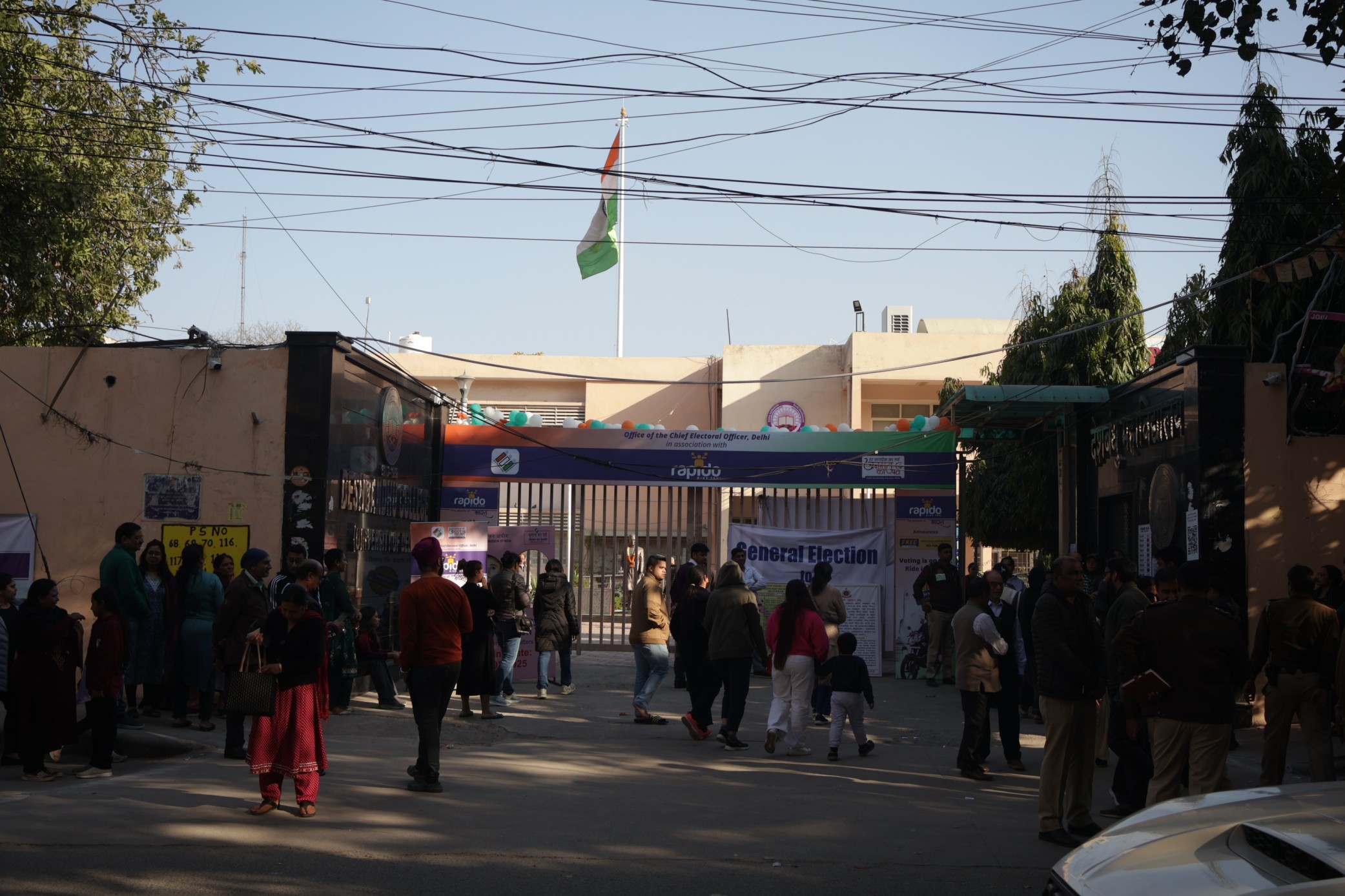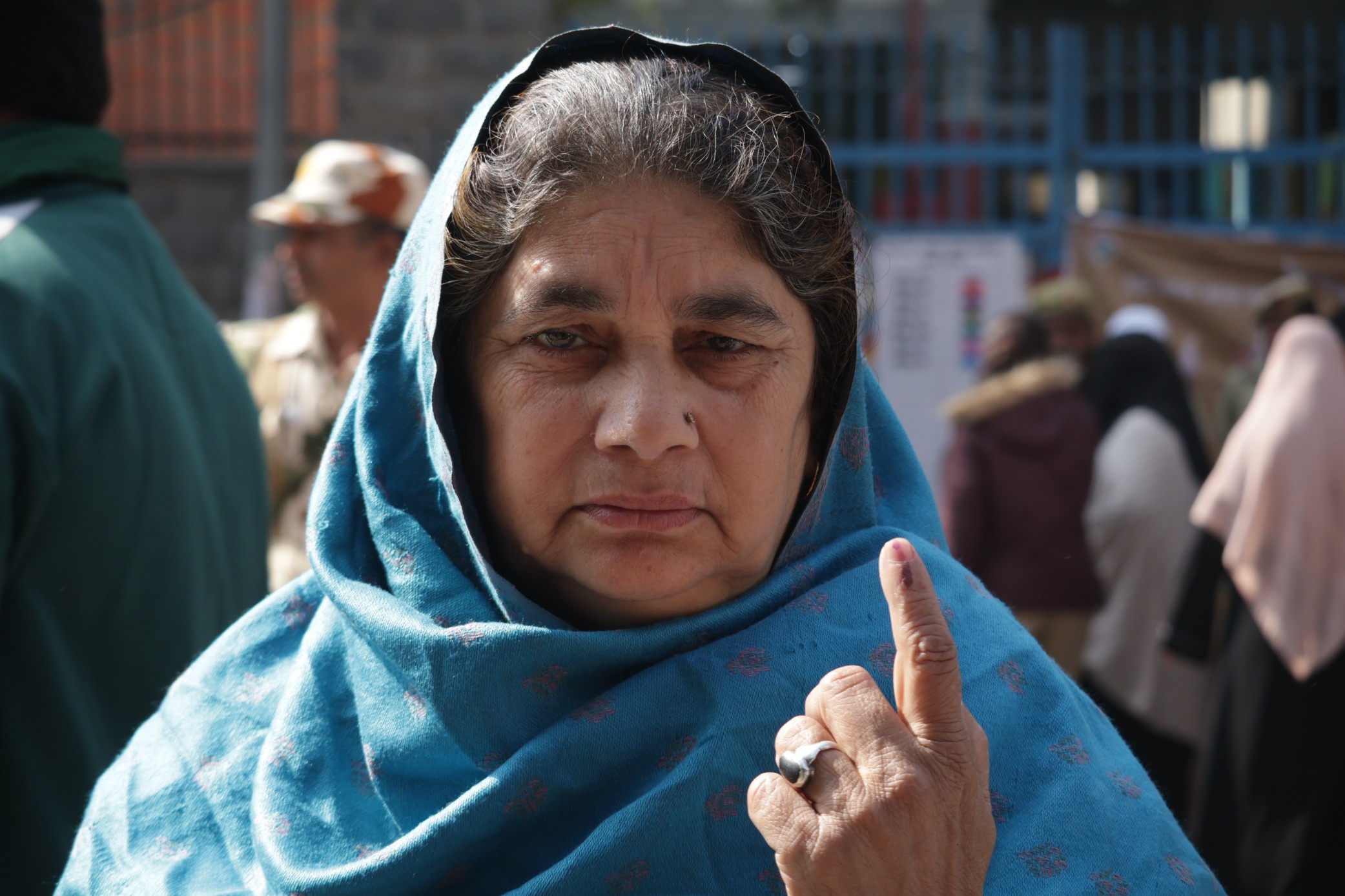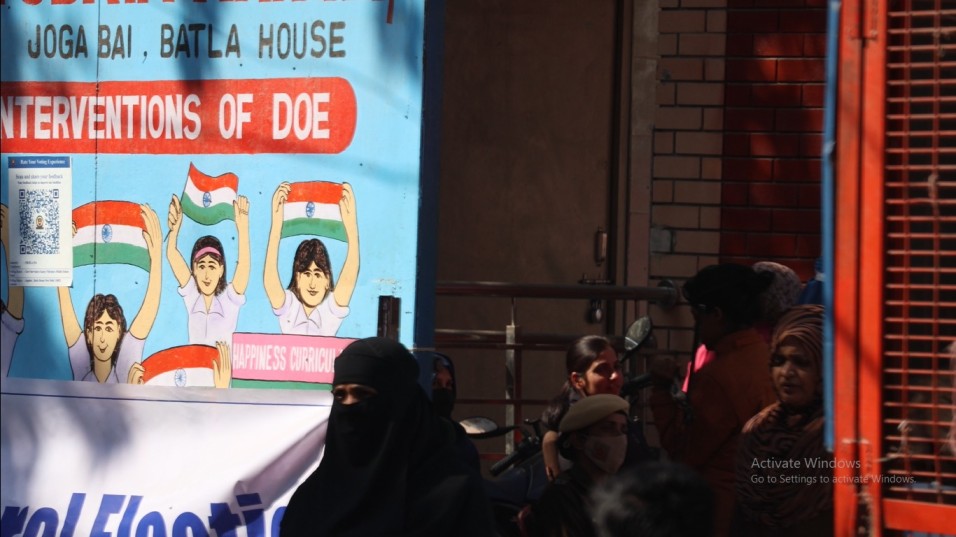'Beyond Religion and Party Lines': How Women in Okhla and Kalkaji Voted in Razor Sharp Delhi Elections

Syed Muskan, TwoCircles.net
"Okhla Beemaar Hai, Usse Shifa Chahiye (Okhla is ill, and it needs Shifa - healing)." These words, spoken by Rubina, a resident of Shaheen Bagh in the Okhla constituency, reverberated through the region's political atmosphere during the February 5 Delhi Assembly elections. Often at the center of shaping political dynamics, women voters engaged in a battle that extended beyond the confines of religion and socio-economic status.
For them, the election was more than just a routine exercise in democracy. It was a moment of empowerment — a moment when they felt heard and believed that they were taken seriously in both public and political spheres. They not only raised the long-standing issues of traffic congestion, poor sewage treatment and inadequate healthcare but also talked about their security in public spaces, identity and employment opportunities.
The political contest in Okhla is fierce, with major contenders being Amanatullah Khan from the Aam Aadmi Party (AAP), Ariba Khan from the Indian National Congress (INC), Shifa Ur Rahman Khan from the All India Majlis-e-Ittehadul Muslimeen (AIMIM) and Manish Chaudhary from the Bharatiya Janata Party (BJP). Women in the assembly segment said their votes went beyond these party lines.
 Gulshan Parveen, a 60-year-old woman from Pahalwan Chowk in Batla House, said the AAP has been a lifeline that provided her with free medical treatment for leg surgeries, activated her pension account and even gave her Rs 30,000 for her daughter's wedding. "There is free bus services for women, free water and free electricity. What else do you think is more important than these for middle-class women?" she asked.
Gulshan Parveen, a 60-year-old woman from Pahalwan Chowk in Batla House, said the AAP has been a lifeline that provided her with free medical treatment for leg surgeries, activated her pension account and even gave her Rs 30,000 for her daughter's wedding. "There is free bus services for women, free water and free electricity. What else do you think is more important than these for middle-class women?" she asked.
For Gulshan, AAP's tangible support makes it the party that women in Okhla can rely on. She strongly believes that the BJP, which has failed to campaign in the constituency, does not even stand a chance. "I am not afraid of the BJP even if it comes into power but people here like me do not even know who the party candidate is because there has been no campaign. The AAP will come into power because women voted for them," she added.
Just a short distance from Batla House lies Shaheen Bagh, a place that has become synonymous with women's political activism since the 2019 protests against the controversial Citizenship Amendment Act (CAA), the National Register of Citizens (NRC) and the National Population Register (NPR).
Rubina, a resident of the locality, voiced a different perspective. While some women staunchly backed the AAP, she is among those who felt disillusioned by the party’s track record. "The AAP campaigned by scaring people that the BJP is coming to power. Every party knows if Shifa Ur Rahman wins, he will deliver on the promises. So far, we have voted for both the INC and the AAP, now it is time for a new candidate," she said.
The need for change is clear for her. She supports Shifa-ur-Rahman, who has been lodged in jail since 2020 in connection with the north-east Delhi riots. "Rahman is one among us, he stood by us in the 2019 protests and is in jail because of us. And therefore, we supported him and voted in his favour," she said.
Sadia, a young voter at Shaheen Bagh, too echoed Rubina’s sentiments. She said she backed the AIMIM not because of the party, but because of its candidate. "I remember how Shifa Ur Rahman stood by the protesters. I supported him because he supported the community at a huge personal cost," she said.

Rinku, the wife of an auto driver, relied on the BJP's promises. "There are various changes that the BJP has promised us. We see the archetype of Uttar Pradesh and other states where the BJP has ruled and think they will bring the same development for Delhi too," she said.
Her major concern was AAP’s stance on liquor, which she found harmful. "The biggest problem I find with the AAP is that it allows liquor in Delhi. A government should never support something that is harmful for its people. So, I aim to see the BJP this time. I know they will work for us," she added.
From Okhla to Kalkaji, from Shaheen Bagh to Batla House, Delhi's women voters voted beyond religious lines. They exercise their right to franchise for what will improve their communities —development, safety and genuine political representation.
With several exit polls predicting a BJP victory, only February 8, when the results of the 70-member assembly polls are declared, will reveal who will seize the throne of the national capital.
According to the Election Commission's Voter Turnout application, the city recorded an approximate voter turnout of 60.54%. Mustafabad witnessed the highest turnout (69%), the lowest was recorded in Karol Bagh (47.40%).
